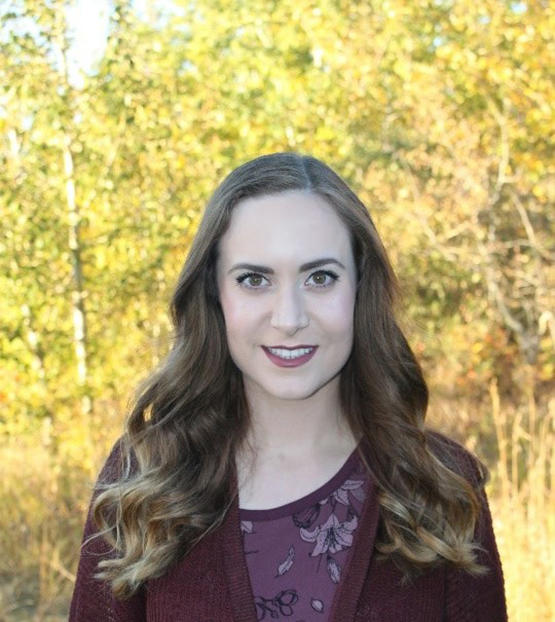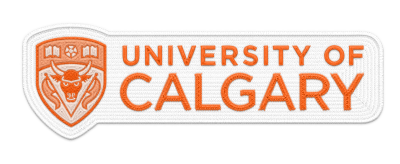Recent graduate
Amanda Calleberg, BSc (Eng)'19

Where is she today?
Trading Analyst for Tenaska
Driving innovation in renewable energy
Amanda Calleberg is a trading analyst at Tenaska, where she is gaining expertise in natural gas trading and marketing, as well as renewable energies such as hydrogen and biofuels. She has a chemical engineering degree with a minor in petroleum engineering from the University of Calgary, where she was president of the Petroleum and Energy Society, one of the largest clubs on campus. She also led Canada’s only Drillbotics team, which annually designs and builds a small-scale automated drilling rig for a global competition. Amanda previously interned at ConocoPhillips Canada, Cenovus Energy and Husky Energy, and has authored multiple publications. She has conducted university research, simulating methane combustion in porous media and modeling downhole drilling parameters. She volunteers as an industry mentor for current students, and enjoys her involvement in Toastmasters and dance performances.
A common challenge for an engineer is to identify, analyze and optimize the key parameters that will noticeably affect how a process is built or operated. In the real world, it is rare to have all the data needed to conclusively calculate a value or run a simulation, so learning when it is appropriate to use assumptions and estimations is an essential skill.
Amanda Calleberg
BSc (Eng)'19
Why did you want to become an engineer?
I believe engineering is one of the most respected and impactful professions in the world. Engineers design and build so many of the world’s products that help solve society’s problems. I wanted to become an engineer so that I could use science and math to create practical products and processes that improve people’s everyday lives. I envisioned engineering would provide me with excitement, challenge and personal satisfaction that I would not find in other professions.
What Schulich experience best prepared you for your career today?
Serving as president of the University of Calgary Petroleum and Energy Society (PES) improved my practical leadership, communication and business skills that I regularly apply in my job. There are two primary growth drivers for my company – acquiring new customers and negotiating more business with existing customers. In both cases, marketing and negotiation skills are essential. Pitching sponsorship opportunities to corporations and negotiating sponsorship agreements to fund club events were key skills that I developed as a club executive. PES also provided me the opportunity to improve my networking and communication skills by speaking at events with over 100 attendees while sharing a stage with CEOs.
Can you describe an accomplishment from your time at UCalgary that makes you feel proud?
During the summer after my first year of engineering, I conducted research under a professor who was an expert in computational fluid dynamics. I built numerical simulations of methane combustion in porous media and studied the effects of fuel composition, flow rate and material properties of porous media on the resulting heat distribution and pollution production. I presented my research in the Undergraduate Research Symposium and earned a sustainable energy development research award. I was particularly proud of this because I was competing with mostly second- and third-year students at the symposium, so I was surprised, and proud, to have received an award as a first-year student.
What advice do you have for new engineering students?
Employment may be very different from studying engineering at university, which can cause frustration among new engineers and impair their ability to immediately add value to the business. A common challenge for an engineer is to identify, analyze and optimize the key parameters that will noticeably affect how a process is built or operated. In the real world, it is rare to have all the data needed to conclusively calculate a value or run a simulation, so learning when it is appropriate to use assumptions and estimations is an essential skill. This enables an engineer to simplify complex problems and build solutions with an appropriate level of detail and accuracy. I advise students to ask questions whenever their instructor decides to ignore certain parameters, provide quick estimates for others or spend time determining accurate values for some parameters. Students should also strive to learn about the economics of the processes they are studying, as that is what primarily drives corporate decisions.
What does it mean to you to be an engineer?
To me, being an engineer means being able to balance time, budget and technological constraints to formulate solutions with minimal risk in the absence of complete or extremely accurate data. Engineers are valuable because of their ability to apply systematic analysis to determine which problems need to be solved to add value to the business, and provide sound opinions and judgments about what action should be taken. For example, I work with a team to determine the most profitable way to transport natural gas from production-sites to demand-hubs. When natural gas prices, production volumes and storage inventories change daily, this becomes a large optimization problem spanning the entire continent, which is an excellent opportunity to apply my analytical skills from my engineering degree.
